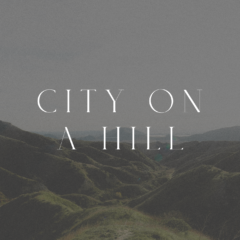

Occasionally it is the other way around, but more than I’d like to admit cultural moments shape what the church believes and practices.
Last week I read This Republic of Suffering: Death and the American Civil War by Drew Gilpin Faust. The book was about death and the carnage of the Civil War. It was a brutal book, not one I would necessarily recommend.
Roughly 2% of the population, an estimated 620,000 men, lost their lives in the line of duty. Taken as a percentage of today’s population, the toll would have risen as high as 6 million souls. The human cost of the Civil War was beyond anybody’s expectations. Soldiers who enlisted had about a one in four chance of dying! Up until the Vietnam War, the number killed in the Civil War surpassed all other wars combined.
The concept of the “Good Death,” a classical idea given Christian shape by the Second Great Awakening, was challenged in the Civil War. Some began to wonder if dying for one’s country or a cause would count.
The brutality of the Civil War changed the doctrine of the end times for much of the protestant church. Here is what Norman Kraus says, “Dispensational theology furnished a reasonable explanation for how God could be sovereign over a world that seemed to be increasingly evil. Americans had difficulty retaining postmillennial optimism in view of the Civil War and World War I, the development of slums, immigration, rising crime, big business, and other social conditions related to industrialization. Dispensationalism made sense to many Calvinists who were pessimistic about individual human nature and it followed that society as a whole was in the same condition. Just as individual salvation requires a miracle from heaven, so would society if it were to be changed.” (Dispensationalism in America, p.60)
I also read Pale Rider, the story of the Spanish Flu of 1918. It was a particular moment in history that drove that virus around the world and changed history.
NOTES:
This Republic of Suffering: Death and the American Civil War by Drew Gilpin Faust
Pale Rider: The Spanish Flu of 1918 and How it Changed the World by Laura Spinney
Dispensationalism in America by C. Norman Kraus
Lincoln’s Second Inaugural Address
RECAP & TAKEAWAYS:
Our hope is that listeners will stop and ask themselves how much their beliefs are shaped by historical moments as much as they are by the Scriptures. We are all products of the moment we find ourselves in.
The only way to escape or see more clearly is to transcend time by reading history or to transcend space by becoming familiar with the church of Jesus throughout the globe.
GET IN TOUCH:
We’d love to hear from you. Please send us an email or question at [email protected]. Or, leave us a voice recording at https://www.speakpipe.com/cityonahillpodcast.
MUSIC:
Little Lily Swing, Tri-Tachyon, Attribution-Noncommercial 4.0 International, https://freemusicarchive.org/music/Tri-Tachyon/the-kleptotonic-ep/little-lily-swing
Sorry, Comfort Fit, Attribution-NonCommercial-NoDerivs 3.0 Germany (CC BY-NC-ND 3.0 DE), https://freemusicarchive.org/music/Comfort_Fit/Forget_And_Remember/03_Sorry
